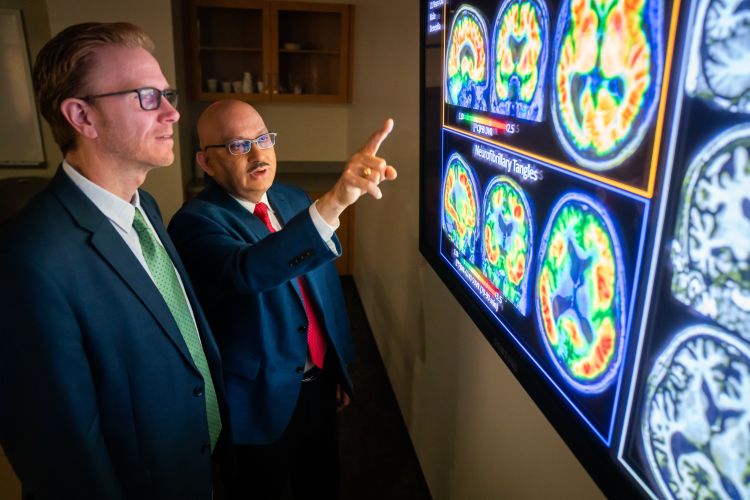DOM faculty lead research that helps launch first FDA-cleared blood test for Alzheimer’s disease

In a crucial advancement for Alzheimer’s disease diagnosis, the U.S. Food and Drug Administration (FDA) recently granted clearance for an Alzheimer’s disease blood test.
Research led by Geriatrics and Gerontology faculty Sanjay Asthana, MD, professor and former chief, and Sterling Johnson, PhD, Jean R. Finley Professor of Geriatrics and Dementia, is being used to validate the new test, which is an in vitro diagnostic (IVD) assay capable of detecting amyloid—a key protein involved in Alzheimer’s disease— in blood.
The Wisconsin Alzheimer’s Disease Research Center (ADRC) and the Wisconsin Registry for Alzheimer’s Prevention (WRAP) provided 40% of the samples used in the validation study to evaluate the plasma p-tau217/Aβ42 ratio as a reliable biomarker of amyloid pathology in the brain.
At the UW–Madison Alzheimer’s disease programs’ biofluids laboratory, these biomarker levels were measured in cerebrospinal fluid (CSF); and then demonstrated that levels of these proteins were congruent in blood plasma samples from the same individuals.
“This is spectacular news and a breakthrough in identifying reliable blood biomarkers for Alzheimer’s disease,” says Dr. Asthana, who is the founding director of the Wisconsin ADRC. “Our ADRC and WRAP programs were instrumental in this achievement, underscoring the strength and vision of our biomarker research initiatives.”
“This milestone transforms years of patient-centered research into a tool physicians can now use to benefit their patients and guide care,” adds Dr. Johnson, the principal investigator of the WRAP study.
Read the full story from the Wisconsin Alzheimer’s Institute.